Experts Available: COVID-19 Crisis Update
In March, Scholars Strategy Network consulted top experts in public health, economics, social inequalities, and more to make sense of the still-emerging COVID-19 pandemic. Four months later, as Congress prepares to debate a new relief bill, we have asked these scholars for an update. Below are the scholars who can comment on the state of the crisis today, what responses are still needed, and what to expect in the weeks and months to come.
- Economic Relief
- State and Local Government
- Health Care Access
- Prisons and Jails
- Reopening Schools
- Housing and Evictions
Economic Relief

"The federal government's response to the pandemic and to the social revolution has been, essentially, a series of policy and moral failures. Our need is now more urgent than ever for policies that actually respond to what our communities are asking for: a universal basic income so that we can all stay at home safely, comprehensive paid sick leave so essential workers don't have to choose between their health and their income, and defunding an increasingly militarized police force so we can re-invest in a supportive social safety net."

"We certainly know more about COVID transmission and treatment than we did in January, and we also know the dire economic and social impacts of the virus. We need economic security policies that will ensure economic security - including universal health care, universal basic income and hazard pay for essential workers."

"The coronavirus pandemic has laid bare how ill-prepared the U.S. is to address basic human needs. Unlike every other wealthy nation, the US fails to provide access to health care for everyone, paid time off for workers who are sick, safety standards to protect health workers, adequate payment to caregivers for people with disabilities, or financial support for businesses in times of natural disasters or widespread illness." [Source]

"Federal immigration policies have placed immigrants at particular risk of infection and death, and recent pandemic policies offer them scant relief. It is imperative that any relief bill include the 12.6 million children living in families of mixed immigration status."
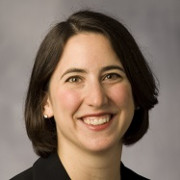
"As communities enact social distancing policies to contain the spread of COVID-19, many workers will end up unemployed or with their hours drastically cut. My research has shown that these community-wide job losses harm families and children in the entire community, including those who keep their jobs."
State and Local Government
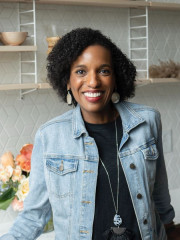
“Local, state and regional governmental authorities in the United States have been chronically underfunded in recent decades, particularly in the area of public health. Additionally, the lack of formal collaborative decision-making institutions make it increasingly difficult to coordinate across jurisdictional boundaries. In the absence of these formal institutions of intergovernmental coordination, deployment of critical equipment is very difficult. Overcoming these collaborative decision-making challenges will be markers of success during this emerging disaster.”

"We can't expect people to comply with authorities that they dont trust — we need citizen buy-in. For example, take the new contact tracking technologies. Nudging people to download something is easy. But people need to believe in it and use it truthfully and faithfully if tracking and tracing technologies are to make a difference. Given the polarization and politicization of public health issues and policies in the US and around the world, this won’t be easy."
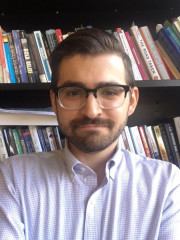
"Because of COVID-19, state and local governments face a once-in-a-generation revenue crisis that will jeopardize both public employment and vital services for millions of Americans. By failing to act to support intergovernmental revenue, Congress is setting up perverse incentives for states and cities to further reopen their economies. This failure to act will contribute to the spread of the virus, which will in turn – paradoxically – weaken regional economies in the long run. State and local governments should be seen as partners in governing the pandemic, not just another lobbying sector."
Health Care Access

“The COVID-19 pandemic has exacerbated many Americans’ financial situations and led to increasing health care needs. Timely policy solutions are needed to reduce costs associated with and beyond COVID-19 care, as well as to expand health care coverage for millions of Americans who lost health insurance due to unemployment. Hospitals and health care systems, especially safety-net hospitals, also face unprecedented financial challenges from high costs associated with COVID-19 hospitalization and revenue-loss due to cancelled services. More help is needed to sustain health care providers’ capacity during the time of increasing health care needs."

Rosenbaum has devoted her professional career to issues of health justice for populations who are medically underserved as a result of race, poverty, disability, or cultural exclusion. She regularly advises state governments on health policy matters and has served as a testifying expert in legal actions involving the rights of children under Medicaid.
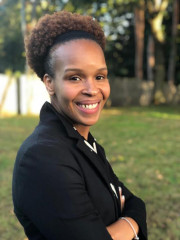
"Due to racialized anti-immigrant rhetoric and policies, immigrants were already afraid to seek health care before COVID-19. Now, fear of being "public charges" under the new Trump administration rule change and ongoing ICE detentions will cause these communities to "shelter in place" even when they need vital care that could save their lives. As many immigrants (and some citizens in mixed-status families) will likely be left out of the proposed economic stimulus packages, they will essentially be left on their own to weather this outbreak, further exacerbating this public health crisis for the country."
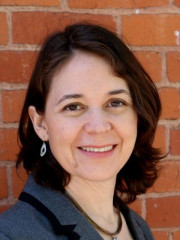
Haozous researches the conditions that promote Native American health equity, with a special interest in urban Indian health, cancer, and end of life care. Haozous draws on her background as a hospice nurse and her perspective as an indigenous woman to her work, using a holistic and decolonized framework to examine issues of policy and health equity. She is active with her tribe and with her local Indian organization, promoting the cultural activities that continue to thrive in our modern society.

"If political considerations overtake science and policy decisions increasingly divide along party lines, the country’s ability to address the difficult challenges of a pandemic will be seriously undermined."

"Vaccines are one of the most promising solutions to the COVID-19 pandemic, but the development of vaccines themselves is not enough. Human factors--including issues of equity and access, perceptions of vaccine safety, and accurate, meaningful and appropriate messages--must be considered and addressed as well to convince people to receive the vaccines."
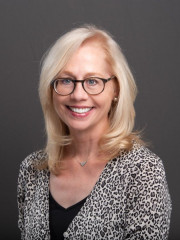
"In an epidemic or pandemic situation, medical and human resources may be stretched to the point of exhaustion. Appropriate planning must incorporate plans of action that minimize public health morbidity and mortality while maximizing the appropriate use of medical and human healthcare resources. This virus is going to be with us for a long time and it is imperative that public health measures be followed by the public, especially the most vulnerable. Such measures should not be politicized, rather, the public officials should be champions for making sure their constituents have clear guidelines and the ability to enforce such guidelines for everyone's safety."

"The fact that millions of Americans have lost their health insurance because of a global health crisis exposes the fundamental mistake of linking health care access to employment. Barriers to managing chronic health conditions place people at high risk of COVID complications. These risks are not spread equally across the population: low income Americans, African Americans, Latinos and Native Americans are becoming ill and dying at elevated rates. Moreover, it is increasingly clear that many of those who contract COVID19 — young and old alike — develop debilitating and long-terms neurological and other symptoms. These Americans will have to figure out how to navigate care and assistance while struggling with pain, illness, fear, fatigue and loss of income. Many will become overwhelmed by our messy and incomplete mixture of public and private programs, each with its own eligibility criteria, demands for proof, waiting periods, re-certifications, and other hoops that are the price we pay for not having an integrated, rational system of universal health care."

"When we talk about safety net providers we're really talking about disenfranchised communities they serve -- low-income neighborhoods and communities of color. When we look at community health centers, we see most of their patients are low-income and nonwhite. Many are also in rural communities where health care access is more limited. But federal surveys of health centers show the outbreak has shuttered between 1000-2000 sites. Relief and recovery measures need to provide greater and sustainable funding support to ensure health care access in these highly vulnerable communities."
Prisons and Jails

"While nursing homes were the epicenters of the first wave of the pandemic, prisons are quickly becoming the epicenters of the second. More needs to be done to protect prisoners, staff, and the communities to which those staff return every day. Releases are important and may well save many vulnerable individuals. But prisons need adequate sanitation supplies and protective equipment, education about using this equipment, and resources to provide enough basic care to ensure that prisoners are willing to report feeling sick, can be safely separated (but not solitarily confined), and will receive treatment. A sentence to prison is not a sentence to death."

"The largest COVID-19 hotspots in the US are prisons and jails. As overcrowded and under-funded places, and with staff, officers, and other employees who travel to and from these facilities every day, outbreaks at these institutions are a public health crisis and are imperiling mitigation efforts in the community. To address this problem, prisons and jails need to reduce their capacity through releases to home confinement, increase the use of PPE and testing, and implement medical isolation that is not punitive."
Reopening Schools

"Many families that have hourly-wage jobs are facing their work hours being reduced. In addition, we have families that have been furloughed. In both scenarios it leads to families feeling economic pressure. A number of these families depended on school meals to feed their families. With a number of K-12 schools going online in the fall, schools are encouraged to find a way to deliver meals to children. USDA needs to provide schools the flexibility over parent/guardian pick-up of meals for their school-aged children. Related Pandemic EBT needs to continue. To ensure that children receive proper nutrition, USDA, local government, and private agencies need to work together."

“School closures last spring disrupted education for many students and exacerbated inequalities in learning. At the UF Education Policy Research Center, we are actively tracking how school districts are planning for reopening and how policymakers are navigating the balance between student safety and educational needs.”
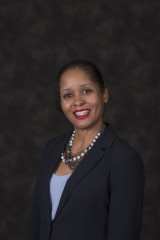
Grosland's research focuses on policy responses, and specifically on pedagogical and emotional responses and the implications for policy. Overarching themes in Grosland's writings include educational leadership, politics, and urban education. Grosland is interested in what it means to experience, not just policy itself, but rather what urban educators consider important social policy.

"School nutrition professionals are asking Congress and the USDA to allow schools to serve universal free meals during the 2020-2021 school year. This policy should be implemented. School foodservice departments across the country have done tremendous work to keep kids fed during the pandemic, but they need federal support to keep their programs financially viable and to ensure that all students can be fed safe, nutritious food during the upcoming academic year. The federal government needs to step up to provide supplemental funding to all school districts participating in the National School Lunch Program to ensure they can pay their workers and serve meals safely. In addition, the government should provide supplemental funds for schools to purchase locally grown food from small-scale producers for use in their school food programs. This will help ensure that kids are getting healthy, fresh food with every meal and boost the incomes of farmers who have seen their sales plummet with the closure of restaurants and college dining halls."
Housing and Evictions
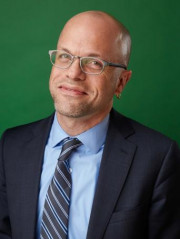
"None of this was predetermined, and none of it had to be so slow and self-defeating. We let a health and jobs crisis become a looming housing crisis, and if policymakers fail to act, especially at the federal level, the fallout from large-scale evictions and unstable housing will feed back into the pandemic and recession in the worst possible way."
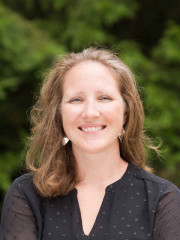
"The U.S. stands on the precipice of a housing and eviction disaster. This disaster has been manufactured by racial capitalism, exposed by the pandemic, and exacerbated by poor policy decisions. Congress generously bailed out corporations while failing to adequately prioritize millions of people who lost their jobs due to the pandemic. Families need decisive and ambitious actions to prevent another housing disaster, and to stave the flow of Black and Brown wealth into white pockets. Congress must act with urgency to pass transformative policies whose scale matches the severity of the crisis."

"People assume that the lives of individuals and families become miraculously stable in times of a pandemic - that sheltering in place, particularly for people who are experiencing issues such as rental evictions, foreclosures, and homelessness can actually be done. During this global pandemic, we need to make sure that people who are experiencing housing transitions are able to keep themselves, their families, and their communities safe by having a place to self-isolate and not worry at the end of the day whether they will be kicked out of those places."

"People who could not pay housing costs over the past months will not be able to pay back housing costs on top of their regular expenses, as unemployment remains high and the supplemental $600 weekly payments come to a close at the end of this month. Temporary relief must be extended and combined with direct financial assistance to help those who might eventually face evictions, pay back rent, expanded access to housing vouchers, and increases in monthly voucher rental-allowance amounts in order to truly keep people in their homes, right now and when the health crisis eventually subsides."